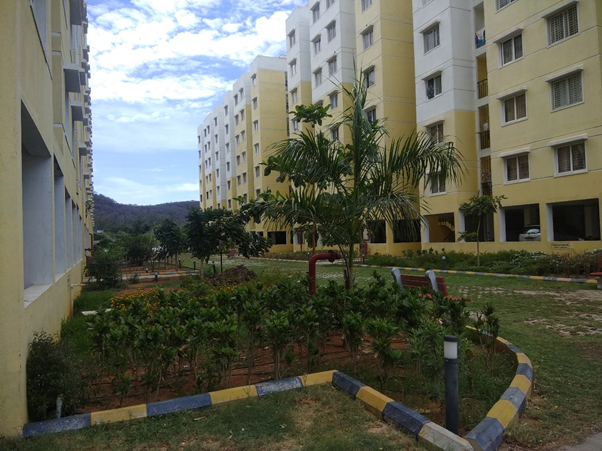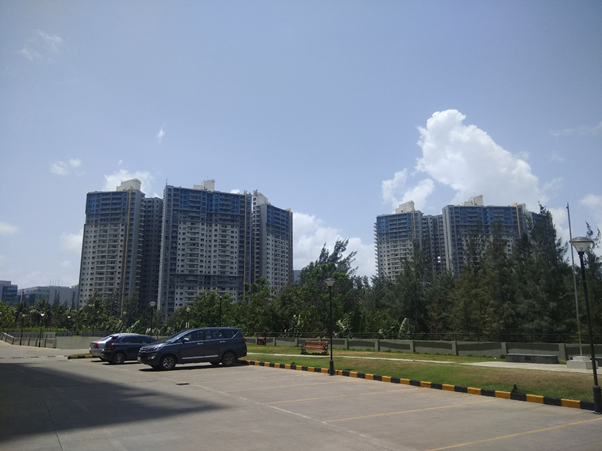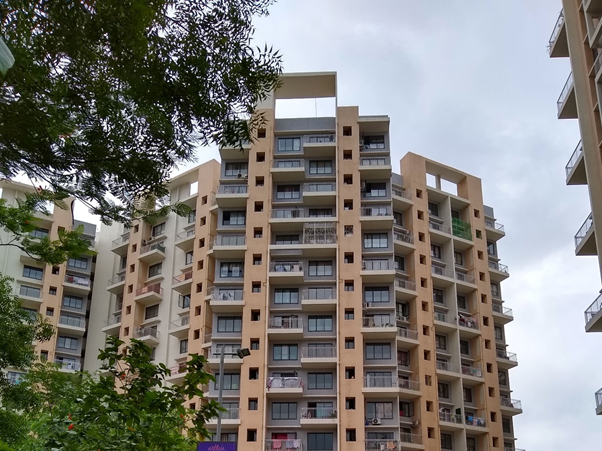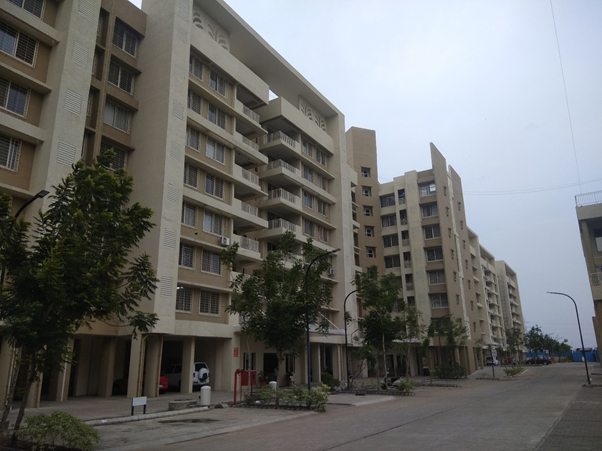Globally access to adequate quantity and quality of water is one of the biggest challenges today. The World Health Organization estimates that 97 million Indians lack access to safe water today, second only to China. The World Bank estimates that 21% of communicable diseases in India are related to unsafe water. Urban areas suffer from poor and leaky distribution networks leading to large amounts of ‘unaccounted water’. In today’s rapidly urbanizing India, with several townships often mushrooming at the outskirts of main towns/cities, availability of adequate quality/quantity of water is fast becoming a very serious issue for consumers, service providers and developers.
Most of the studies, conducted with regard to urban water management across the country, focus on certain aspects like storm water management, waste water treatment systems, water supply systems etc. But in these studies, planning for water is often oversimplified due to isolated assessments. Therefore, drifting from this common practice, the Centre has adopted a metabolic approach that considers ‘One Water’, which basically defies the segregation of water in various categories like storm water, waste water etc.
In this context, the Centre’s exercise on sustainable water use in habitats is envisioned to look at a holistic way of managing water (water efficiency, conservation and management) within a premise for sustained availability for all its consumers. The water sustainability city-level assessment, building-level water audits, and web-based tool is likely to generate awareness among relevant stakeholders including citizens, mitigate potential risks, and ensure efficient water-management at micro and macro levels. Furthermore, the outcomes of the study will help in development of policies and designing measures towards protecting the regions ecosystems, propagation and adoption of water conservation practises, and strengthening of the water governance structure and administration.
A growing population coupled with rapid urbanization in the metropolitan cities such as Bengaluru, Chennai, Gurugram, Mumbai, Pune and others is leading to an increasing need for accommodation facilities. The need has given rise to a new kind of residential development called townships which are mushrooming at a rapid pace in and around cities. Global change impact on the use of water resources is a reality and recognizing that urbanization such as expansion of residential townships will exert a greater impact on human activity compared to climate change, at least up until 2050, requires urgent action. Therefore, it has become important for residences to use and manage water sustainably.
Since the concept developed in the early 1990s, developers across the country have continuously re-defined the township model as per the market demand. With the emerging Environmental, Social and Governance (ESG) mandate in corporate governance in India, many corporates have embarked on the road to sustainability. Companies have started gradually incorporating SDGs into their responsible business actions, and achieving water self-sufficiency is one of the key action themes. With growing environmental concerns, buyers too are increasingly interested in homes equipped with water-saving technologies.
Sustainable water use in habitats is one of the key areas of research at the Mahindra-TERI Centre of Excellence (CoE), a joint research initiative of Mahindra Lifespaces and The Energy and Resources Institute (TERI), which aims to develop science-based solutions for India’s built environment.
In this context, the Centre of Excellence activity on sustainable water use in habitats was envisioned to look at a holistic way of managing water within a premise for sustained availability for all its consumers.
The study was conducted on two levels of assessment: micro and macro:
Depending on the findings of the study conducted at the micro and macro level, we found out that there was a need for help guides and online tools which could facilitate the user to estimate the water systems related requirements of the site. Today the engagement of all socio-economic segments such as consumers, financiers, managers, developers and corporates has increased. They are now expected to contribute to achieve sustainable water use and management through advanced technology and innovation in their projects. Developers too are re-discovering the township model with growing focus on water conservation and zero wastewater discharge in their projects.
Therefore, deriving from our study, we have developed the ‘Guidelines on Water Efficient Measures for Residential Townships’.
This reference guide adopts a three-point approach framework which focuses on reducing a site’s water usage, harnessing alternative sources of water such as reuse of treated wastewater and rainwater for reducing the dependency on fresh water supplies and integrating green infrastructure for efficient storm water management. It talks about various sustainable design options, technologies, operation and maintenance measures that can be adopted for water-related systems in the township and incorporate best practices by the user for attaining water efficiency.
The measures suggested in the document are innovative, practical and easy to implement. They have been developed after conducting thorough research on national and international case studies and water audits of several townships across India to understand the issues and design solutions.
As population continues to boom and concentrate in the metropolitan cities such as Bengaluru, Gurugram, Pune, Mumbai, Chennai etc., a growing need for accommodation has given rise to a new type of residential development called townships mushrooming at a rapid pace. Since the concept developed in early 90s, developers across the country have continuously re-defined the township model as per the market demand. With growing environmental concerns, buyers today are increasingly interested in homes equipped with water-saving technology. Developers too are re-discovering the township model with growing focus on water conservation and zero waste water discharge in their projects. They are now expected to contribute to achieving sustainable water use and management through advanced technology and innovation in their projects.
The WATER Calculator is a decision support tool which can be used by home owners, businesses and infrastructure developers to assess the water efficiency and savings in their upcoming residential projects. The calculator assists in determining the project's water demand and potential for achieving the water savings and to carry out sustainable management on site.
The Rainwater Harvesting Calculator helps the user to estimate the amount of rainfall that can be harvested for reuse and groundwater recharge at various cities across India. It facilitates the user to design the capacity of rainwater storage water tank and the potential for reduction in fresh water demand. The calculator also helps to check the design for groundwater recharge structures.
With a growing population, expanding economies, urbanization, and changing lifestyles this has had a major impact on India’s economic, social and environmental wellbeing due to increasing pressure on already strained water resources. The rapid population growth along with rising consumption levels and pollution is contributing in increasing water insecurities in urban India. The depleting water resources on the one hand, rising water demand on the other, leave limited possibilities to augment the water supply in the coming future. Rising effects of climate change may further aggravate the situation by generating higher magnitude and frequency of extreme weather events and also by altering the precipitation volume & pattern, which shall have adverse effects on the available sources of fresh water supply.
Water stress has specifically magnified for metropolitan cities with depleting groundwater levels, widening of water demand & supply gap and rising pollution of water bodies to name a few. Therefore, in order to mitigate these rising urban water issues, there is a need to enhance the sustainable water flow and management in cities.
In this context, a study to assess the water sustainability in the cities of Chennai, Gurugram and Pune has been conducted. The study identifies potential risks associated with the water sources and demand & supply at city level and provide recommendations to mitigate the same. The output of the sustainability assessment reports of Pune, Chennai and Gurugram will help in informing not only urban planners but also every relevant stakeholder involved with water sector about (a) the new sources of water (b) the amount of water which goes out of the system unutilised, which could help in addressing the inefficiency in per capita water storage and availability (c) the seasonal problems like flooding and inefficient storm water management and the required balance for equitable water distribution over time (d) water related infrastructure (e) and water recycling potential.
According to the report ‘Composite Water Management Index’ published by NITI Aayog in June 2018, Indian cities are facing one of its worst water crises in its history. It therefore becomes imperative that all sections of the society have to partner in dealing with water challenges.
Urban areas are in the forefront on news related to water crisis (Cape Town, Chennai, Bengaluru, Delhi and so on). Lack of water storage and infiltration are causing increased frequency of floods on one hand and less than 20% of rainy days in a year coupled with increasing demands, water quality deterioration and restriction on import of water from neighbouring regions are leading to droughts and water scarcity on the other hand. Water use efficiency by populace, water harvesting and storage and recycling and reuse of wastewater after treatment are some of the low hanging options to deal with urban water sustainability challenges as showed by Singapore city. Other measures particularly relevant for Indian cities is monitoring and record keeping of water flows and revisiting per capita water supply norms in view of penetration of new technologies and changing lifestyles. Organised housing townships in urban areas can be flag bearer in such initiatives.
With above background, rapid water audit of selected residential townships across the country has been conducted in order to examine their water use pattern and management and eventually lay down generic recommendations for the townships in India to enhance their water efficiencies.



